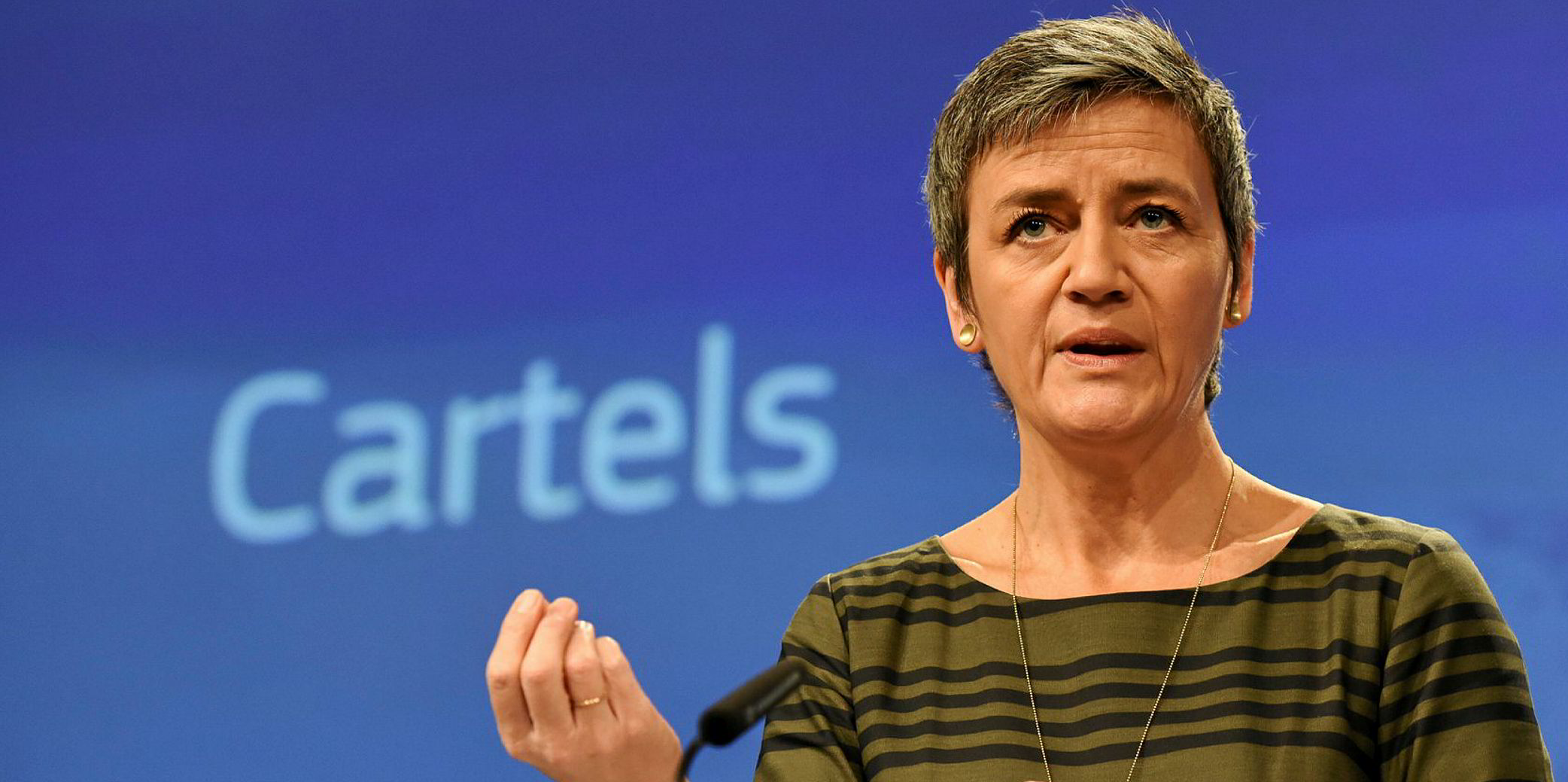Lines have rallied against a call by a think-tank to repeal the European antitrust liner shipping rule.
The OECD-affiliated International Transport Forum (ITF) believes that the European consortia block exemption should be allowed to expire in April 2020, not renewed, as lines are hoping.
The regulation, which is under review by the European Commission, allows lines with a combined market share of less than 30% to cooperate or provide joint services.
But in a lengthy paper looking at container shipping alliances, the ITF argues it should be repealed “in line with the global long-term trend to dismantle sector-specific exemptions from competition law and OECD regulatory principles”.
“Liner shipping does not have unique characteristics that justify exemptions from competition law,” the report said. “Countries where ‘conferences’ are still allowed should reconsider their position.”
That brought a strong rebuke from the World Shipping Council (WCS), the US-based liner shipping lobby, which argues that the ITF's focus on three main east-west alliances “demonstrates a fundamental misunderstanding of how the consortia block exemption works”.
Alliance self-assessment
The three alliances — 2M, Ocean and THE Alliance — are subject to self-assessment by their members.
“The EU block exemption simply does not apply to these arrangements in most cases,” the WCS said.
The ITF “ignores numerous vessel-sharing arrangements [VSAs] that are not part of alliances and that provide regular, often unique, services to shippers”, it added.
“It is these VSAs for which the EU block exemption regulation provides increased legal certainty, reduced compliance costs and greater ability to respond to market demands.”
The ITF argues that the repeal of block exemptions would ensure greater scrutiny of individual alliances and deter anti-competitive conduct.
“In order to maintain legal certainty, the EC could provide temporary guidelines on how to treat liner shipping in EU antitrust law,” it says.
“If the block exemption is extended, its scope should be limited, in particular by introducing a provision to consult maritime transport stakeholders and by excluding joint purchasing by alliances.
“Given the widespread phasing out of block exemptions for other sectors internationally, there must be a strong presumption in favour of adopting a similar approach in relation to liner shipping.”
The forum contrasts the position of shipping with the airline industry, where antitrust rules have not impeded the creation of alliances.



